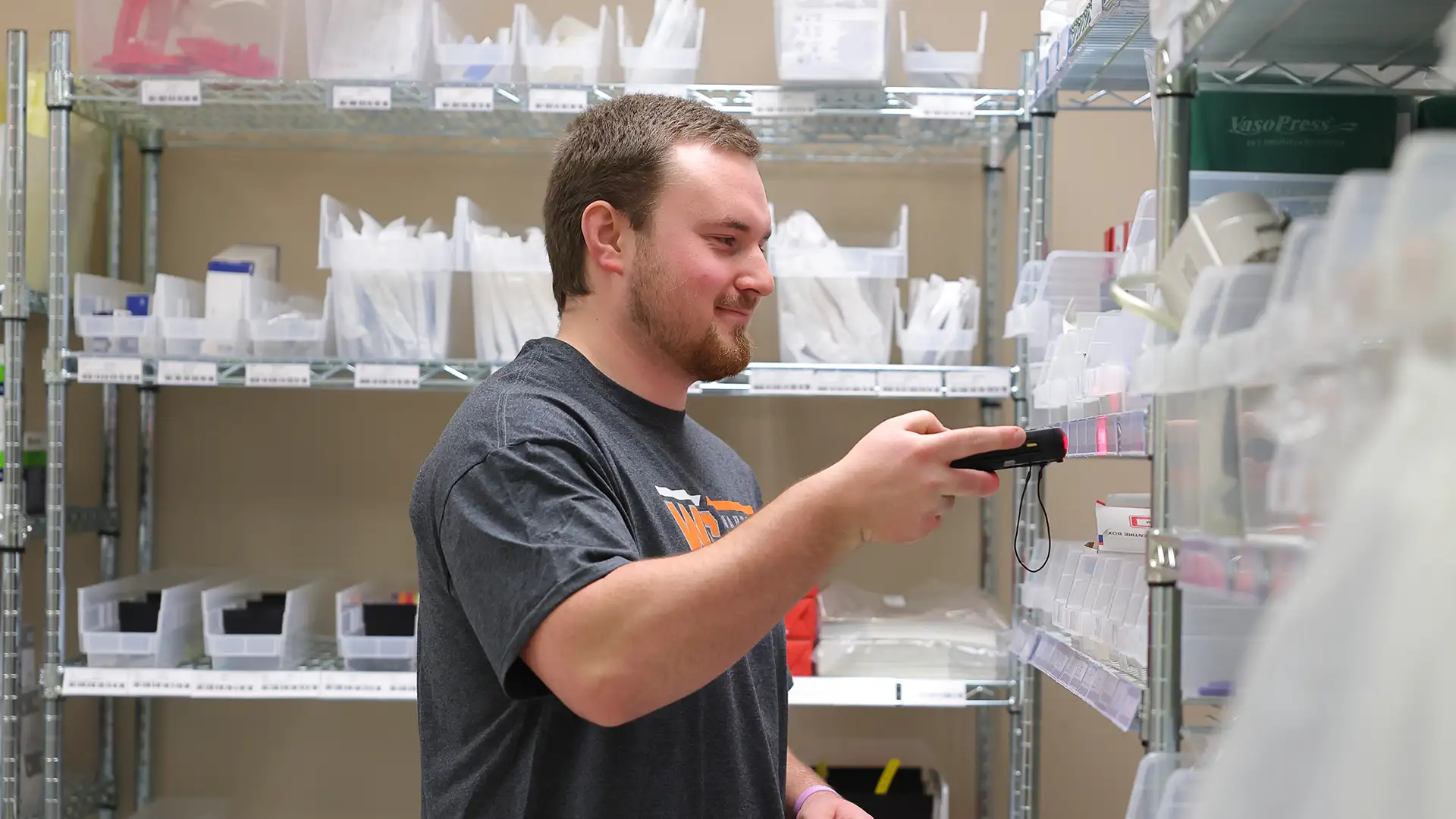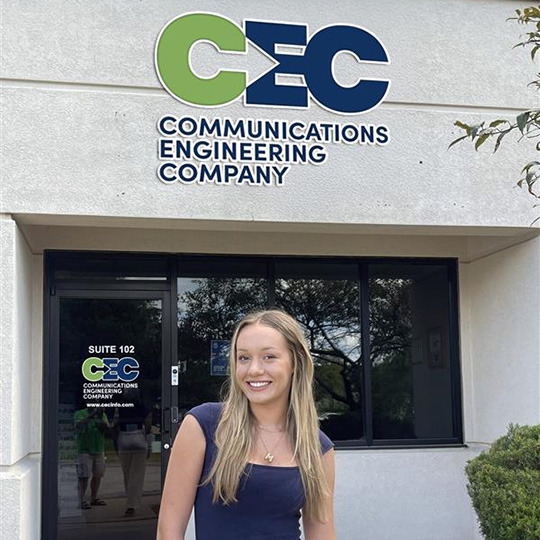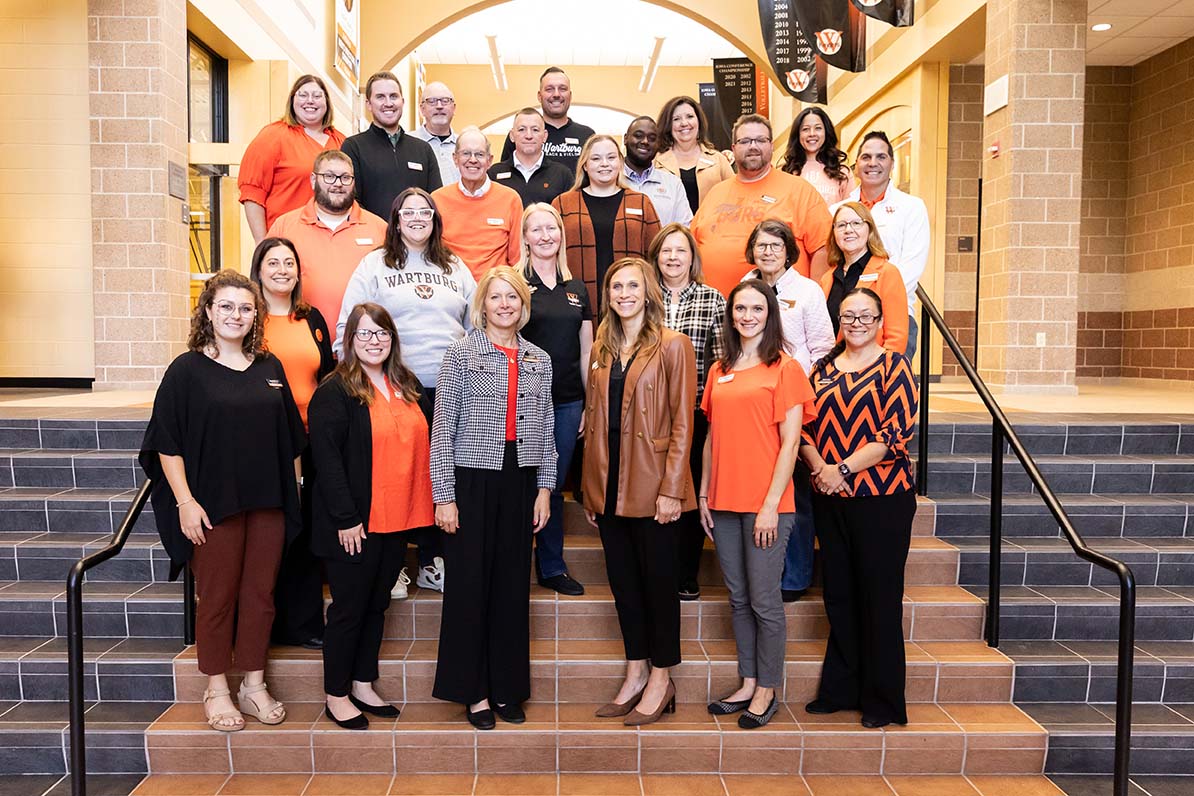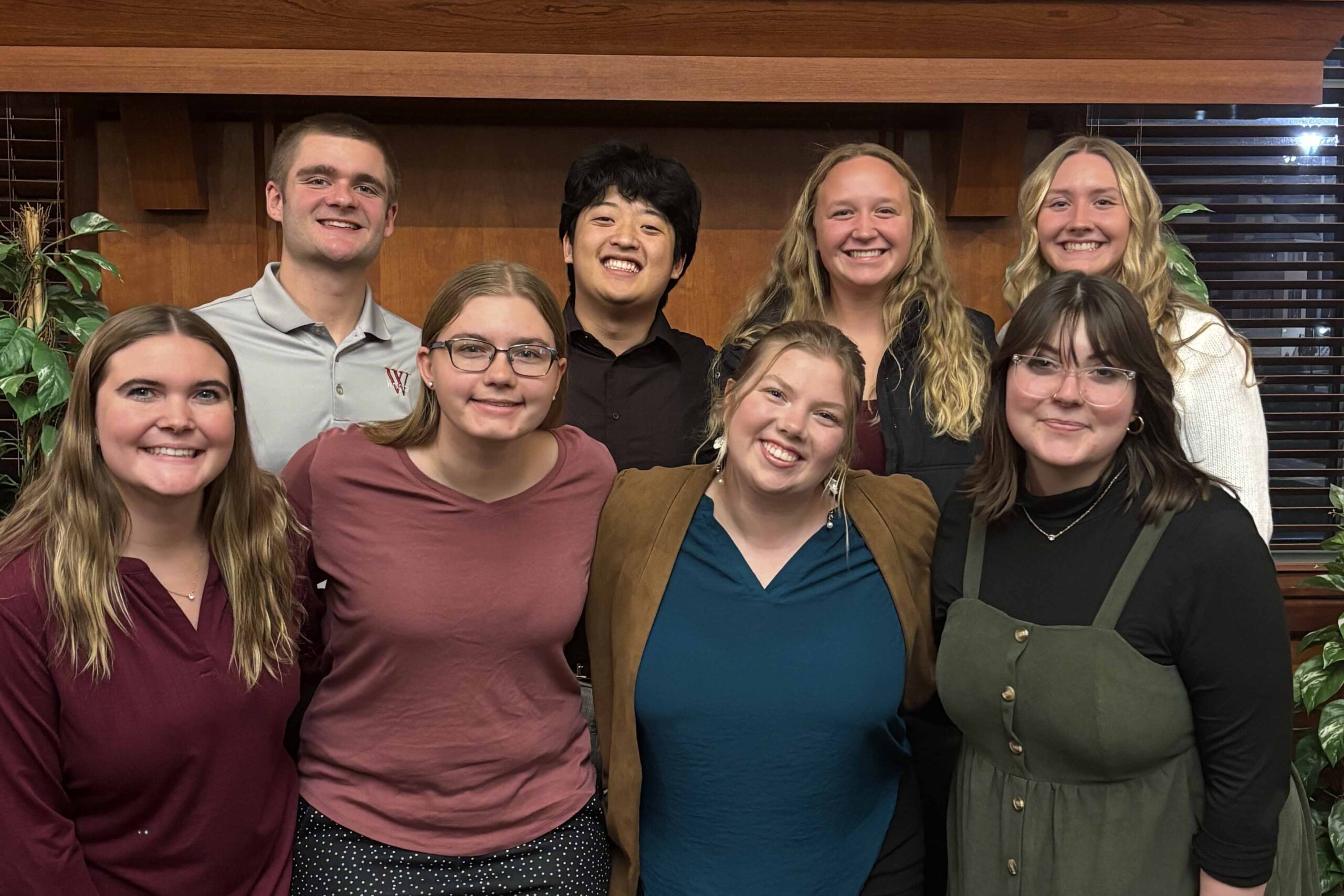
Internships
Internships are an important part of experiential learning where you can take what you have learned in the classroom and apply it in a professional setting. It is also an important step in securing a position after graduation, as more and more employers are seeking students who have had internship experience during their undergraduate studies. At Wartburg, internships, field experiences, practicums, and job shadowing are required in some majors and encouraged in all. The Career Connections Center offers resources to assist you with resumé and cover letter development, mock interviewing, and guidance on potential internships in the Cedar Valley and throughout the country.
Important Internship Information
You should begin the internship process with a trusted faculty member and enlist the help of the internship coordinator when needed. Internships involve both a site supervisor and a faculty supervisor so that you may learn from both. The faculty supervisor may or may not be your adviser.
- You and your faculty supervisor plan an internship by determining what type of experience best suits your educational, personal, and professional goals. A list of possible sites may result from this initial step; a list of possible learning objectives, hopes, concerns, and other considerations should also result.
- You may work with the internship coordinator to identify opportunities and search for leads by checking Handshake, websites, company files, internship publications, AlumNet, and other opportunities. The Career Connection Center can assist you in developing a resumé and cover letter/email.
- You, your faculty sponsor and the internship coordinator can contact potential internship sites to discuss partnership possibilities. The faculty member and internship coordinator bear responsibility for ensuring that the internship site and partner are safe, effective, and appropriate learning environments.
- You should be advised of the risks associated with any off-campus activity and then review and sign the Experiential Learning Waiver.
- You should arrange and participate in the interview with the site internship representative.
- Before accepting a position, you, your faculty supervisor, and the site supervisor should discuss key issues and develop a Learning Contract.
- When the internship Learning Contract has been approved, a letter of confirmation from you or your internship coordinator to both supervisors may be useful, outlining the process for the semester.
- The completed Learning Contract or registration-only portion of the Learning Contract is filed with the Registrar by the internship coordinator, at which point you are officially registered for an academic internship.
- Credit-based internships are open to third- and fourth-year students with a cumulative GPA of 2.0 or higher; some departments may have other criteria as well.
- One full academic credit involves a minimum of 140 contact hours in the term; one half-credit involves 70 hours. However, academic credit is issued not solely for hours worked but for academic learning demonstrated.
- No more than 4 internship credits may be awarded toward a student’s graduation.
- Student interns are limited to 2 credits per internship site.
- Students are required to fully complete an internship Learning Contract and submit it to the internship coordinator by the drop/add date each term or submit a “registration-only” portion (Sections A, D & E) of the Learning Contract by the same date. The “registration-only” specifies the student’s contact information, faculty sponsor, title of internship position, course number, number of credits, internship start and completion dates. The signatures of the intern, faculty sponsor, faculty adviser, department chair, and internship coordinator are also required for this paperwork to enroll them in the course. The learning objectives and job responsibilities sections (Parts B & C) of the learning contract are to be completed by the student and the site supervisor once the internship is active. The site supervisor signature is required at that time.
- Students must complete and submit final paperwork to the internship coordinator within 21class days of the start of the term (or 8 class days into the term for .5 credits, 3 class days into the term for May term and 5 class days into the term for Summer). Full full-term internships, students will receive a warning notice from the internship coordinator at the 14-day mark into the term. If the completed Learning Contract is not received by the appropriate day for the term as outlined above, the student will automatically be dropped from the internship and receive a “W” on their transcript. Internships are facilitated by the internship coordinator and evaluated by the sponsoring department and/or faculty.
Student Responsibilities
- Reflect upon, identify and discuss interests and possible internship sites with appropriate faculty members and/or internship coordinator.
- Complete resumé/cover letter with the help of the Career Connections Center.
- Pursue site selection as appropriate, in consultation with faculty supervisor and internship coordinator.
- Work with site supervisor and faculty supervisor to create meaningful learning objectives and ways to achieve and evaluate them.
- Understand and adhere to host organization’s policies, including those regarding confidentiality.
- Carry out all designated responsibilities with the organization and the faculty supervisor, including all assignments and projects articulated in the learning contract.
- Write a final report and/or assessment of the internship experience in accordance with faculty and site supervisor expectations.
- Be creative, flexible, professional, inquisitive, responsive, and responsible.
- Be aware of the contributions of those around you to your own learning.
- Seek opportunities for learning, growth, and challenge.
- Bring any questions or concerns promptly to the site supervisor, faculty supervisor, and/or internship coordinator.
Responsibilities of Community Partner/Site Supervisor
- Provide the intern with a safe work environment and with meaningful, progressively-responsible work that meets the mutually-defined needs and expectations of the partnership.
- Communicate with the faculty supervisor and intern regarding development, oversight, and evaluation of the internship.
- Share wisdom and experience with the intern: tips, meaning-making strategies, books or articles, and perspectives.
- State clearly and concretely expectations of the intern and the faculty supervisor, including issues of oversight and autonomy.
- Develop reasonable and mutually beneficial evaluation and oversight mechanisms.
- Work with the intern and faculty supervisor to connect the internship and its project to the specific goals and projects of the organization and connect the professional field to the academic field.
- Meet with the intern periodically to evaluate progress, plan future work, and discuss potential or actual problems.
- Confer with the faculty supervisor or internship coordinator for mid-term review and final evaluation of the intern and the internship as partnership.
Responsibilities of the Faculty Supervisor and/or Internship Coordinator
- Work with the student to explore their goals and desires and to consider possible sites for appropriate projects.
- Help the student understand and explore the relationships between academic learning and experiential or professional learning.
- Support the student in locating and developing the partnership with the organization.
- Represent the college in building and sustaining collaborative partnerships with community organizations.
- Be alert to challenges or problems at the site; ensure that any problems are promptly and appropriately addressed.
- FACULTY: Clarify learning outcomes and steps to achieve and evaluate them, with attention to academic learning as well as workplace learning. This will likely include assigning appropriate reading and writing.
- FACULTY: Read and respond to assignments (logs, journals, analysis, final projects); discuss with the intern and site supervisor as appropriate.
- FACULTY: Assign a grade (usually P/D/F) to the student based on reasonable and collaborative evaluation of student performance.
- INTERNSHIP COORDINATOR: Serve as primary consultant for risk management and liability issues.
Wartburg provided me with the tools and confidence I needed to take on the internship search process. In LS 111 with Dr. Gonnerman, I learned how to make a professional resumé, practice job interviews, and create a strategic plan to help me find the internship I needed to help me succeed in my future career.”
Margaret Van Speybroeck ’26
Business Administration






